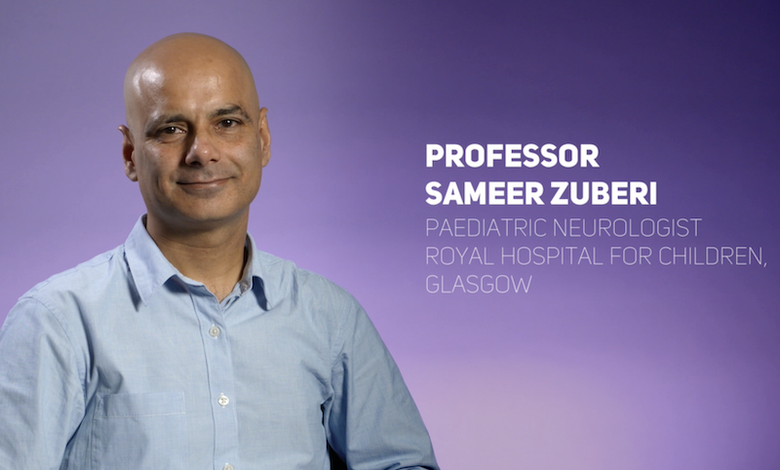Genetic Testing
The genetic test for Dravet Syndrome is normally a simple blood test, available free of charge via the NHS. The type of test may vary depending on where you are in the UK.
The test looks to see if there is a change in someone’s genetic code. It is possible to test for just one gene, a panel of epilepsy-related genes or to have something called ‘whole genome’ testing. In England and Wales, whole genome testing is now standard practice.
What is whole genome testing?
Your genome is the information needed to build the human body and keep it healthy. It is written in a code called DNA. Your genome is made up of pieces of DNA, or genes. Dravet Syndrome can be caused by changes to the genome which may be passed down through a someone’s genes. The whole genome test checks for genes that can cause Dravet Syndrome.
What are the benefits of genetic testing?
It can be very helpful to find out whether people with a clinical diagnosis for Dravet Syndrome also have a genetic mutation associated with the underlying causes of the condition. Benefits include:
- A ‘positive’ test for a genetic mutation, sometimes called a ‘confirmative’ test, can help prevent misdiagnosis and avoid further unnecessary tests.
- If you get a ‘negative’ test for a genetic mutation, you could still receive a clinical diagnosis of Dravet Syndrome. So, you can still get access to therapies and support, including from Dravet Syndrome UK.
- With a positive test, you can make better-informed choices about treatment and therapies. This may lead to better seizure control, improving someone’s quality of life
- For babies and infants, it’s hard to get a clear diagnosis of Dravet Syndrome from symptoms alone.
- A genetic test can give an adult the correct diagnosis and mean their condition can be better understood and managed. They may have been misdiagnosed or the early signs and symptoms of Dravet Syndrome could have been lost from someone’s medical history.
- A genetic test can tell you whether Dravet Syndrome is inherited or has arisen spontaneously.
The video below features Professor Sameer Zuberi, Consultant Paediatric Neurologist at the Royal Hospital for Children in Glasgow and Dravet Syndrome UK Medical Advisory Board member. He discusses some of the benefits of genetic testing for Dravet Syndrome from a family perspective.
Genetic counselling
Despite its many benefits, genetic testing can be an emotional time for families and genetic counselling is always recommended, both before and after testing.
An important aspect of genetic counselling is that it provides support with the emotional and family implications of a genetic condition. This could be:
- to understand the nature of the test, the risks and benefits involved and potential results
- support with coping and adjusting to a diagnosis
- help with how to tell other members of the family about the possibility of the condition being passed on.
To receive genetic counselling, your neurologist or paediatrician will need to refer you to your local NHS Regional Genetics Centre or to a private provider. More information about genetic counselling is available via the NHS website, including a list of NHS genetic centres.
What if we tried a genetic test a few years ago and it was negative?
If you have a clinical diagnosis of Dravet Syndrome but not a confirmed genetic one, then it may be worth speaking to your neurologists about doing the gene test again. Genetic research is advancing all the time and scientists are identifying new genetic mechanisms within genes.
How will genetic testing affect insurance?
Download the Association of British Insurers guide to find out how a genetic test might have an impact on certain types of insurance for someone living with Dravet Syndrome.
Which genes cause Dravet Syndrome?
Read more about how 85% of people with a diagnosis of Dravet Syndrome have a change (mutation) in the gene known as SCN1A.
Gene therapy treatments for Dravet Syndrome
Read about gene-based therapies that are currently being explored for Dravet Syndrome and what this might mean for future treatment.
A brief history of Dravet Syndrome
Discover more about the background of this relatively newly diagnosed condition.
What causes Dravet Syndrome?
Find out how Dravet Syndrome develops when one of the genes in a part of the brain doesn't function as it should.
